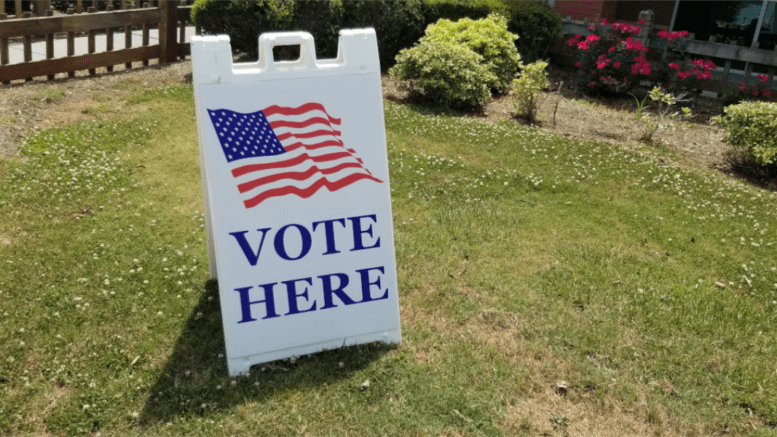by John A. Tures, Professor of Political Science, LaGrange College
Last week, several of my LaGrange College undergraduates joined me at the Georgia Political Science Association, where they presented our research on a variety of topics, and talked politics as well, without a fight. But when it came to discussing the holidays, several expressed nervousness about the potential for family disagreements, perhaps about politics.
They’re not alone. Last year, a “Quinnipiac poll found that almost two-thirds of Americans, 65 percent, hope to avoid talking about politics altogether during the Thanksgiving holiday,” as reported by Alejandra O’Connell-Domenech with The Hill. And we find that this sentiment is held by a similar number of Americans, regardless of the political ideology, age, race or gender. Democrats and Republicans are similarly reluctant to talk politics over the holidays. Women and men report a similar aversion to chatting about politics at this time of year. Though younger people are less like to want to do this than older people, all age and racial groups report between 60% and 70% shying away from political talks over the Thanksgiving Holidays, according to Quinnipiac’s 2021 survey (as reported by Katharina Buchholz, a Forbes contributor).
Believe it or not, members of the media are actually suggesting that we refrain from engaging in political discussions altogether. Chris Westfall, another Forbes contributor, wrote the following article: “Family Matters: How to Avoid Talking Politics Over Thanksgiving Dinner, In 5 Steps.” In his article he cites “Sally Plass, an Indiana-based specialist in manners and social graces, is to simply keep politics off the table. “There are certain things as a guest or host you shouldn’t bring up,” she shares. Westfall adds “a simple agreement can help to shift perspectives, and redirect potential conflict. Can we agree not to talk about politics at dinner?” Moreover, he compares a dislike for talking politics to refraining from serving broccoli if people don’t like it.
I couldn’t disagree more. A hallmark of our democracy is political discourse. To be an informed citizenry that makes political freedom work, we have to be able to express our political views and understand what constitutes another’s differing opinion, according to a number of political scientists. Authoritarians are marked by leaders who forbid political discussions. That’s where the real fear of talking politics exists, regardless of whether it’s the holidays or not.
While I was in a country that had once been classified as free, I noticed many of their college students were too afraid to answer some of my basic questions. “We’re not supposed to talk politics” one whispered apologetically. The teacher then suddenly appeared. “It is not illegal to talk politics, but it is definitely not encouraged.” She then glared at the students who shrank back. Freedom House now classifieds that country as “Not Free,” as the country actually voted to give their leader even more powers, and many simply stay quiet about political corruption.
There are better ways to talk about politics with others during the holidays. Think about what you’re trying to accomplish. If you insult someone else’s views, do you really expect them to rush to your side and say “Oh, you are so right. I’ve been so dumb.” Is your candidate really going to win the 2024 election if you force your aunts and uncles to adopt your views?
On the other hand, you can accomplish several things in a political discussion. Showing respect to someone who disagrees with you can win support for your viewpoint, from the other person and from observers. You can learn more about your opponent’s argument, perhaps digging a little deeper to figure out what leads him or her to think that way.
My students hold different viewpoints, but they recognize the greater good from coming together. They work as a team, not focusing on rehashing ideological disputes, but presenting our research for our service-learning clients over nonpartisan issues. This year, they even combined to win an undergraduate research award. They respect each other’s opinions more than many might expect in this polarized environment. In fact, our biggest disagreement is whether to get Dunkin Donuts or Krispy Kreme for breakfast.
We should recognize that goal shouldn’t be “winning” or “losing” a political debate among family members, but to show that despite the polarization on the networks and social media (often promoted by foreign entities who lack our best interests at heart), we can stay united as a country, keeping our values of free expression intact. Those who oppose those core beliefs of freedom want to break down the family. You counter that around the table, not with stoic silence, but with the kind of spirited discussion that would make our Founding Fathers proud.
John A. Tures is a professor of political science at LaGrange College in LaGrange, Georgia. His views are his own, and do not speak for LaGrange College faculty, students, staff or administration. He can be reached at jtures@lagrange.edu. His Twitter account is JohnTures2.

